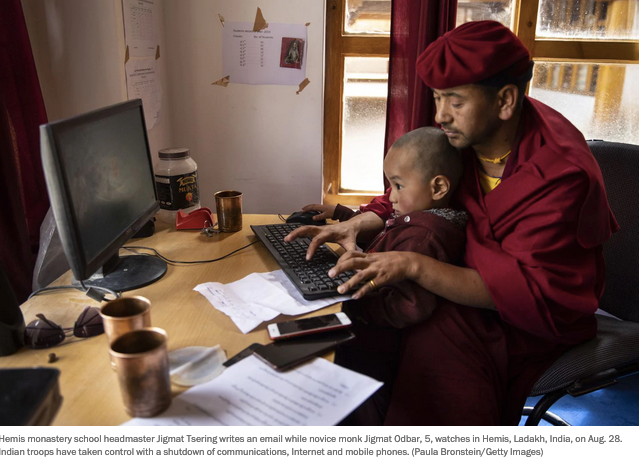WHAT’S A repressive government to do when the Internet gives protesters new ways to speak up? That’s easy: shut the whole thing down.
The New York Times reports that more than a quarter of countries in the world have cut off civilian access to communication tools at some point in the past four years. The practice is on the rise, mostly in Asia and Africa, and often to muffle discontent. Zimbabwe blocked the Web for six days early this year. Congo did it for 20, Sudan for an entire month. A blackout in Myanmar’s Rakhine state turned the lights off on the ethnic cleansing of the Rohingya Muslim minority.
The leader in Internet shutdowns is, alarmingly, the world’s largest democracy: Experts have documented at least 159 disruptions in India since 2016.
Each of these incidents takes a toll. Entrepreneurs are cut off from their clients, sometimes losing contracts altogether. Sick people go without treatment because doctors are unable to order medicine, and hungry people go without food because they can’t access the digital currency they use to pay for it. The Brookings Institution estimated shutdowns cost the globe $2.4 billion in a single year. A study by Deloitte suggests countries can lose up to $23.6 million every day per 10 million inhabitants. Nations jockeying for attention in the digital economy will have less success in the long term if their markets are open for business one day and closed the next.




